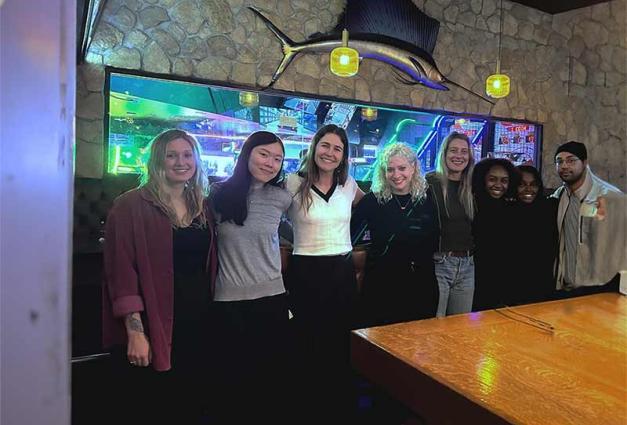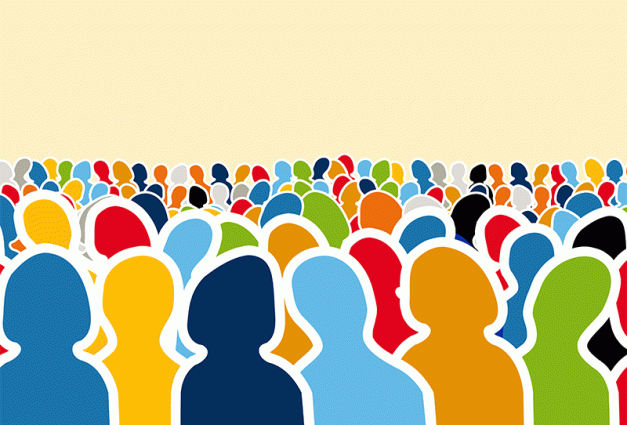In recognition of June as LGBT Pride month, SPSP interviewed four members whose research focuses on the LGBTQ+ population. Enoch Leung, Eric Russell, Florien Cramwinckel, and Harrison Oakes shared how they came to be interested in their current areas of research, talked about their research and findings, and shared the relevance of their work to LGBT Pride month.
Enoch Leung
Enoch recalls growing up as a gay, Asian-Canadian male attending a Christian high school without the presence of students who identified as LGBTQ+, and the isolation and frustration he felt. He notes, “Taking my own experiences into account, I wanted to become a researcher or be in a position where I could help current students to feel more comfortable in their school, and not feel the way I felt. I realized that students who identify as LGBTQ+ endure significantly higher amounts of victimization and a negative school climate. I wanted to look into practical solutions and positive support systems to minimize such negative consequences.”
Enoch’s research ties into a moment in time when people around the world show support for LGBTQ+ individuals, which can demonstrate to students that no one is alone, and that there are supportive allies.
Eric Russell
Eric initially pursued this research for his undergraduate honors thesis. He states, “I was interested in understanding why straight women easily gravitate toward gay men as friends. After witnessing many of these close friendships on television, in the media, and in my own life, I thought to myself: ‘there HAS to be something deeper going on here…’ So, I took it upon myself to create the first experiment to examine the social psychological benefits that exist within women’s friendships with gay men.”
To date, Eric has conducted more than 15 studies examining women’s friendships with gay men, and many of his findings have supported the general hypothesis that because gay men are neither sexually interested in women nor in competition with women for the same mates, women can build trust and rapport with gay men very quickly in their relationships.
His research may yield insight into the factors that make heterosexual individuals supportive allies of the LGBT community.
Florien Cramwinckel
Florien has always been fascinated by prejudice and discrimination. Additionally, she comments, “I have been working as a volunteer for an LGBT interest group for several years. In this capacity, I have provided hundreds of sexual diversity intervention training to thousands of young people in the Netherlands. As a researcher, I have become more and more interested in also critically investigating the effectiveness of these programs.”
She hopes to be able to contribute to LGBT acceptance by increasing the effectiveness of prejudice interventions.
Harrison Oakes
The theoretical grounding of Harrison’s current work comes from sociology, specifically Eric Anderson’s (2009) Inclusive Masculinity Theory. One particularly influential research report Harrison came across was Mark McCormack’s 2011 ethnographic study of high school boys in England. McCormack reported that, across a 5-month period of regular observations, he witnessed no acts of homophobia.
Harrison notes, “I was shocked by McCormack’s report, not only because it contrasted so strongly with my own experiences of homophobic bullying in high school, but also because it contradicted the reality I repeatedly encountered in my previous academic and activist work on bullying. Intrigued, my supervisor, Dr. Richard Eibach, and I began discussing the implications of a homophobia-free social environment for men, which eventually lead us to the question of whether such social environments might weaken the perceived association between gender atypicality in men and being gay.”
Harrison’s work suggests that eradicating homophobia frees up men, regardless of sexuality, to express all aspects of themselves, whether or not they align with traditional notions of masculinity.
Thank you to Enoch, Eric, Florien, and Harrison for sharing their personal stories and information about their research. You can learn more about LGBT Pride Month by viewing information from the Library of Congress, PBS, and the SPSP blog.




